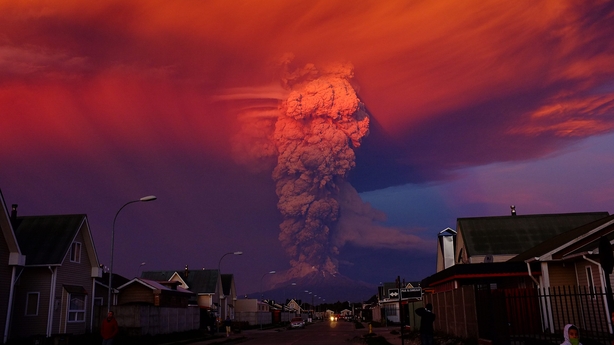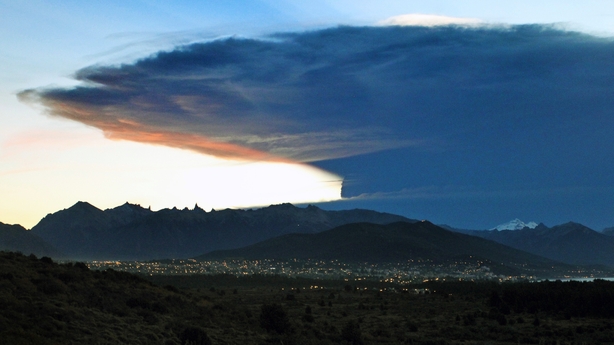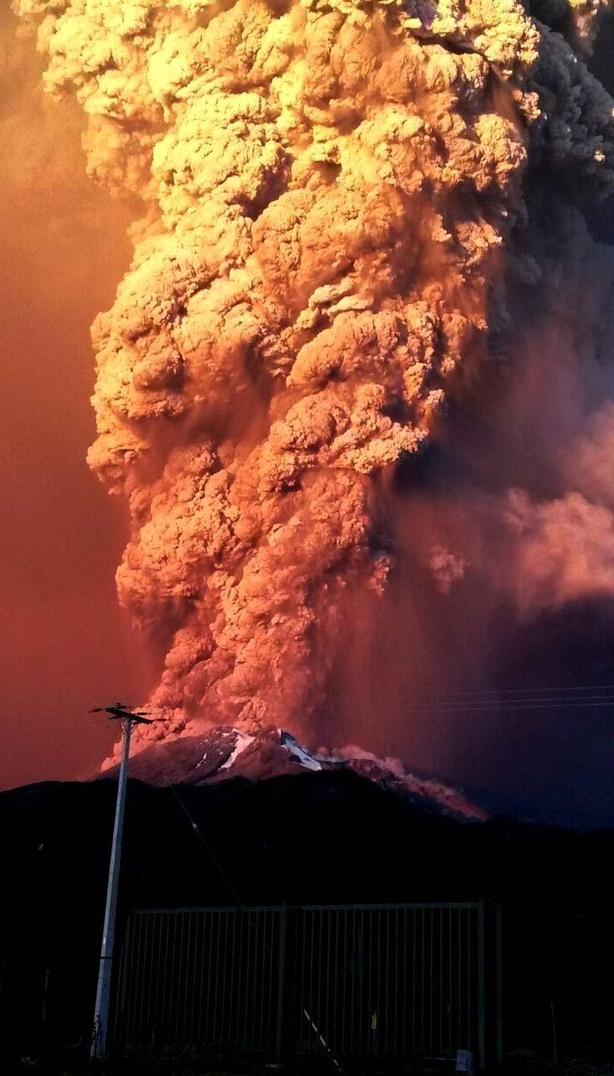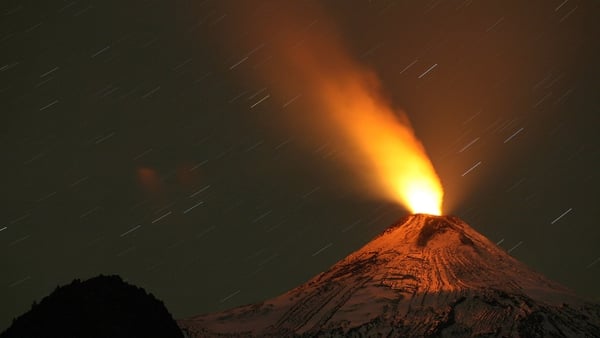A volcano in southern Chile that erupted unexpectedly yesterday was still pouring ash into the sky this morning, forcing the cancellation of flights from nearby towns in both Chile and neighbouring Argentina.
Calbuco, which last had a major eruption in 1961, has blown a spectacular plume of ash and smoke nearly 20km into the sky near Puerto Varas, 1,000km south of Santiago.

Over 4,000 people have been evacuated from the immediate area, authorities said, with the emergency services focusing efforts on the small town of Ensenada, 15km from the volcano.
A climber who was close to the summit when the eruption occurred is missing.
Flights were cancelled from the nearby Chilean city of Puerto Montt, as volcanic ash can damage aircraft and makes flying dangerous.
Just over the border in Bariloche, Argentina, flights were also cancelled and school suspended.
Calbuco is around 90km south of Puyehue, whose eruption in 2011 sent ash high into the atmosphere, leading to the cancellation of flights as far away as Australia.
Nearer the ground, pyroclastic flows were a potential hazard, experts said.
"The current activity has the potential to produce pyroclastic flows, which are fast-moving, ground-hugging currents of ash and hot air," said David Rothery, Professor of Planetary Geosciences at Britain's Open University.
"These are deadly, and the 20km radius evacuation zone that has been declared is a wise precaution."
Thick clouds obscured views of the volcano, but experts warned that the eruption could go on for some time.
"The 1961 eruption lasted six weeks and [the volcano's] biggest eruption, which was not so different from this one, at the end of the 19th Century, lasted three years," Moyra Gardeweg, a vulcanologist, said on local TV.
The scenic lakes area in Chile and Argentina close to the volcano is a popular destination for domestic and international tourists.



